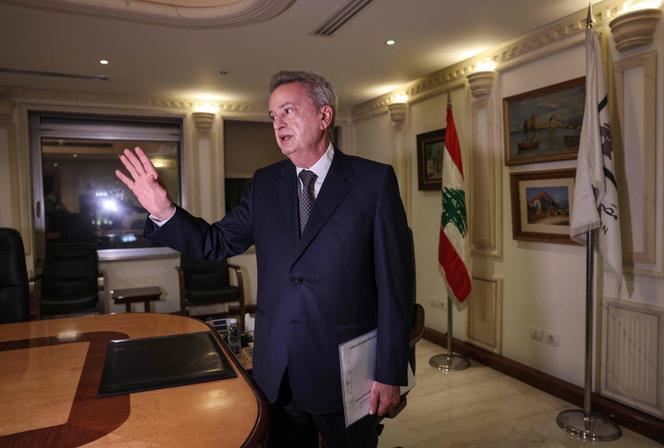


The beginning of Riad Salameh's retirement was quickly disrupted. Less than two weeks after stepping down as head of the Bank of Lebanon (BDL), the former central bank governor was sanctioned by the United States, Canada and the United Kingdom on Thursday, August 10. In the eyes of the US Treasury Department, his "corrupt and unlawful actions have contributed to the breakdown of the rule of law in Lebanon."
Washington is accusing the 73-year-old former governor, who held his post for some 30 years, of having "abused his position of power (...) to enrich himself and his associates by funneling hundreds of millions of dollars through layered shell companies to invest in European real estate." He is also accused of having "placed his personal financial interests and ambitions above those of the people he served, even as the economic crisis in Lebanon worsened." Lebanon has been in an economic meltdown since 2019.
The measures taken by the US and its partners mean that Salameh's assets − as well as those of his relatives, who have also been blacklisted − are frozen in these countries. Salameh has told Reuters that he intends to "challenge" the decision. The US administration claims that the "coordinated sanctions complement" ongoing investigations in Europe and Lebanon. Two arrest warrants against him were issued in May by the French and German courts. Presenting himself as a "scapegoat," the former governor has always denied accusations of embezzlement of public funds and money laundering.
Salameh has long been considered a loyal partner of the US. As head of Lebanon's central bank, he had access to sensitive data, including that which could concern Hezbollah financiers, who are being hunted down by Washington. The fact that he was able to complete his final term of office was seen by some observers as a sign that the US wished to spare its former ally. "However, it was well known that the Americans no longer supported Riad Salameh," said a senior Lebanese official, before adding ironically that "it took them longer to reach the conclusions of the European investigators."
The US sanctions are "belated, but far from insignificant," said anti-corruption lawyer Karim Daher. "They will complicate all transactions in other financial markets. Banks operating in dollars don't want to take the risk of dealing with a person watched by the US Treasury. These sanctions are also a sign that the noose is tightening internationally around Riad Salameh."
You have 22.84% of this article left to read. The rest is for subscribers only.
